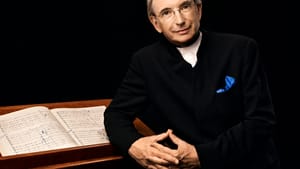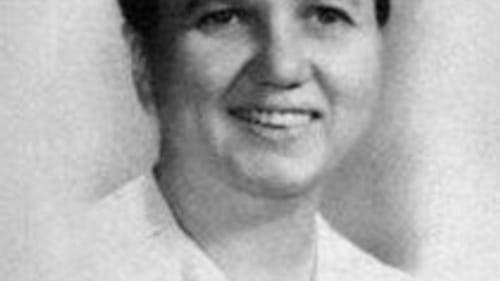Stay in the Loop
BSR publishes on a weekly schedule, with an email newsletter every Wednesday and Thursday morning. There’s no paywall, and subscribing is always free.
"Eroica" and more
The Philadelphia Orchestra with guest conductor Michael Tilson Thomas

What do a rule-bending 19th-century symphony, a partially atonal violin concerto, and a short work for strings by an American woman have in common? They are all highly listenable and still challenge listeners to think beyond our expectations. Guest conductor Michael Tilson Thomas led the Philadelphia Orchestra in these three works last weekend: Ruth Crawford Seeger’s Andante for Strings; Berg’s Violin Concerto; and Beethoven’s Third Symphony in E-flat major, the Eroica.
The works also have a theme of mourning. Beethoven’s Eroica contains a celebrated funeral march, and Seeger’s Andante offers a contemplative segue to Berg’s concerto, which he dedicated “To the memory of an angel,” referring to the death of Alma Mahler Gropius's 18-year-old daughter.
Occupying the second half of the program, the Eroica is a concert-hall staple, yet packed with such variety and inventiveness it never palls. Some music lovers, myself included, date the birth of modern music in all its richness to its first public performance in Vienna in 1805.
A great man
Before the Eroica, concert music was largely diverting, well proportioned, and elegant, neither a crucible for forging colossal ideals nor an engine for transforming the lives of individuals and, potentially, societies. In the Eroica, Beethoven propels music from the Enlightenment into Romanticism and beyond, celebrating the artist and individual rather than nobility who traditionally commissioned works for their delectation and to show off their wealth. All this was achieved by one man in his early 30s, small in stature, a foreigner with a rough country accent, already struggling with the specter of deafness and thoughts of suicide.
Thomas has an unerring ear for the dynamics of this singular work, following Beethoven’s indications and his own logic and heart. Throughout the piece's 40-plus minutes, an exhilarating conversation unfolds among an imposing cast of musical characters. Thomas does not overdo sections of passionate intensity, and he is a master of those small moments of silence with which Beethoven peppers his compositions, creating the eloquence of negative space. The orchestra shouts out boldly in two chords to begin and spins out a series of chords signaling the conclusion. In between lies a tale of assertion, triumph, death, renascence, and joy as only Beethoven can define it.
Everything about this performance sang and soared. The orchestra’s master musicians have seldom sounded better. Standout performances abounded, but if anyone gets the laurel crown, it’s the hornists in the third movement trio: Jennifer Montone, principal; Jeffry Kirschen, associate principal; and Daniel Williams. Richard Woodhams, principal oboist, has so many moments to shine, including one of most memorable woodwind entrances in the repertory during the stately second-movement funeral march.

Beethoven initially dedicated this work to Napoleon, a foolhardy move when you consider that the “Little Corporal” was largely viewed as the enemy of the composer’s aristocratic employers. But, upon hearing Napoleon had crowned himself emperor, the composer crossed out the dedication in a rage, instead inscribing it "to the memory of a great man." Perhaps, after all, the great man is Beethoven himself.
Riveting works
The concert began with a short but riveting work by Ruth Crawford Seeger (1901-53), her "Andante for Strings." This work murmurs in the low registers with downward-turning phrases and soft dissonances suggestive of lamentation. These phrases slowly rise to a piercing climax and recede back into the depths from which they originated. Only five minutes or so in length, the "Andante" is a bell-curved pane of sound in which little pockets of tension and resolution tumble after each other, providing intellectual interest and a variety of emotions.
Next came Greek-born violinist Leonidas Kavakos in Berg’s "Violin Concerto," composed in 1935. The Berg is curious, blending conventional tonality with the serial dharma he inherited from his teacher, Arnold Schoenberg. The result is a low-key but lushly beautiful outpouring of feeling, expressed within impeccable musical architecture. It's almost Impressionist in its use of shimmering cymbals and the way the trumpet or trombone cuts through the underbrush of rustling strings, only to fade into memory. Kavakos meshes with the surrounding orchestral force and shines like a single star. What a warm, mellow tone, never striving to assert itself nor clamoring for attention, but seamlessly serving the music, making a lifetime of study seem effortless. Thomas molds the smooth shapes and rising sonorities of this appealing work, allowing Kavakos the full freedom to express his vision, which he does without theatrics and with sincere humility.
There is so much to love in this concerto: the little duets between soloist and individual orchestra members in movement two, the snippet of a Bach chorale (let’s not forget that Schoenberg masterfully arranged several Bach chorales), the heavenly high final notes in a meringue of discord. Thomas deftly assures that each moment is articulated within the context of the whole. A wonderful visit by Thomas (music director of the San Francisco Symphony) and Kavakos. As always, it's a real treat to hear the Philadelphia Orchestra musicians, the soul of great music.
What, When, Where
Beethoven's Eroica. Michael Tilson Thomas, conductor; Leonidas Kravakos, violinist. Seeger, Ruth Crawford, Andante for Strings; Alban Berg, Violin Concerto; Ludwig van Beethoven, Symphony No. 3 in E-flat major, Op. 55, “Eroica.” The Philadelphia Orchestra. March 10-12, 2017, at the Kimmel Center's Verizon Hall, 300 S. Broad Street, Philadelphia. (215) 893-1999 or philorch.org.
Sign up for our newsletter
All of the week's new articles, all in one place. Sign up for the free weekly BSR newsletters, and don't miss a conversation.

 Linda Holt
Linda Holt